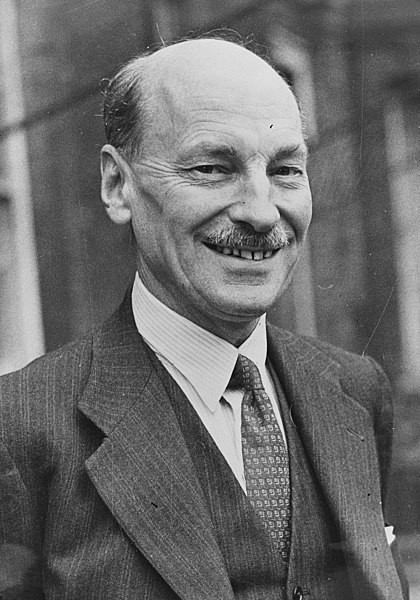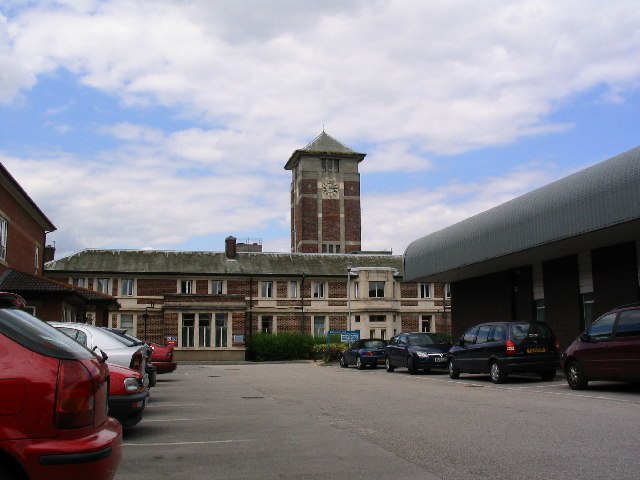Arthur Creech Jones was a British trade union official and politician. Originally a civil servant, his imprisonment as a conscientious objector during the First World War forced him to change careers. He was elected to Parliament in 1935 and developed a reputation for interest in colonial matters, gaining the nickname "unofficial member of the Kikuyu at Westminster". He served in the Colonial Office in the Labour government of 1945–1950. After losing his seat in the 1950 general election he was involved in writing and lecturing about British colonies, before returning to Parliament in 1954. Initially, he was known as Arthur Jones, but throughout his time in politics he invariably used his middle name.
Jones (left) speaking with Paramount Chief Nsefu at Fort Jameson during his 1949 tour of Northern Rhodesia
Clement Attlee was invited by King George VI to form the Attlee ministry in the United Kingdom in July 1945, succeeding Winston Churchill as Prime Minister of the United Kingdom. The Labour Party had won a landslide victory at the 1945 general election, and went on to enact policies of what became known as the post-war consensus, including the establishment of the welfare state and the nationalisation of some industries. The government's spell in office was marked by post-war austerity measures, the violent crushing of pro-independence and communist movements in Malaya, the grant of independence to India, the engagement in the Cold War against Soviet Communism as well as the creation of the country's National Health Service (NHS).
Attlee (1950)
Trafford General Hospital, known as the birthplace of the NHS



